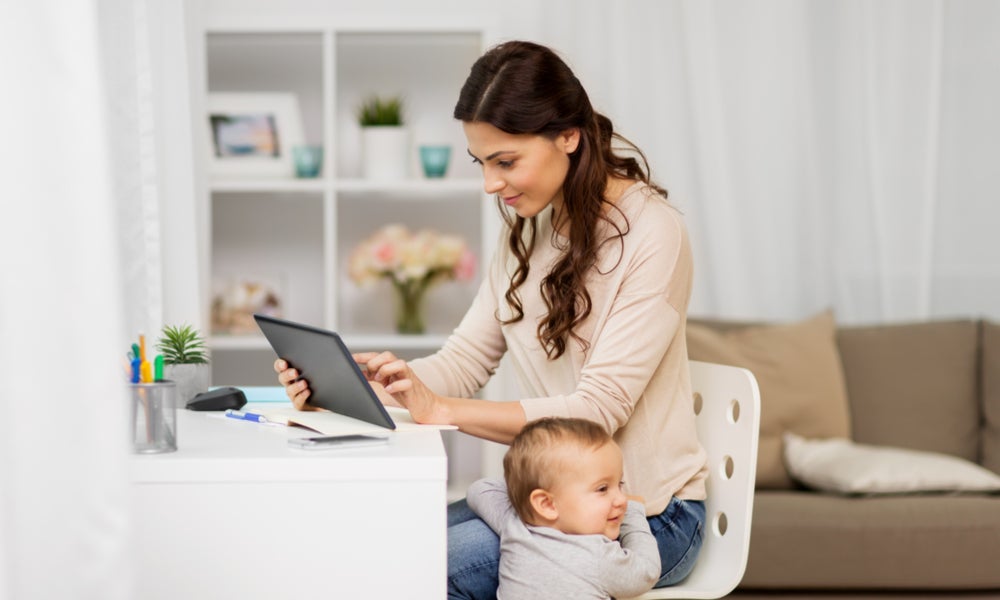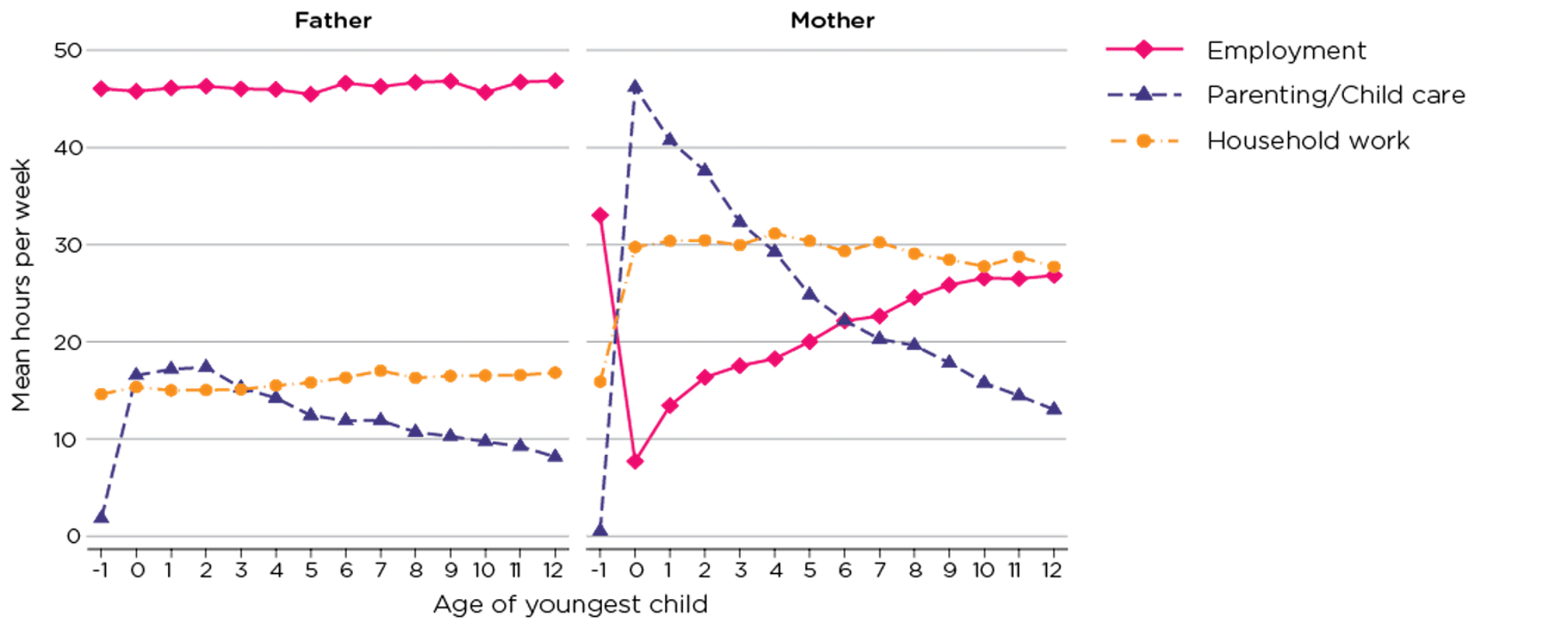Gender equality: why coronavirus presents an opportunity to close the gap
The coronavirus crisis poses an opportunity for greater gender equality in the workplace but businesses and government must act now to capitalise on this, according to Australian Human Rights Institute's Louise Chappell and UNSW Business School's Claudio Sissa
A crisis can be an opportunity for gendered change: the First and Second World Wars proved to be a watershed moment for women's emancipation with large swathes of women entering the workforce, and the creation of women's institutes, which led to women's greater political participation. But what about the current crisis? Could COVID-19 be a movement for greater gender equality in the workplace?
Already, anecdotal and some rigorous research is emerging on the impact of COVID-19 on gender equality. Recent reports have shown that the incidence of domestic violence is on the rise since much of the world has been on lockdown. It is also estimated that of the 600,000 jobs lost in April, 55 per cent were held by women, despite women accounting for only 47 per cent of the workforce, according to the latest figures by the Australian Bureau of Statistics. Almost two-thirds of the jobs lost were part-time, with women making up more than 68 per cent of all part-time employees.
Preliminary analyses also suggest that female academics are sending fewer articles for review and starting fewer research projects than their male peers. But there is an area of hope: the recognition by the world, and importantly by employers, of the informal care burden that happens within homes – and which disproportionately (although not exclusively) falls on women.

Recently, the UNSW Diversity & Inclusion Team and UNSW Gender Champions ran a webinar titled Working From Home: Redefining Gender Roles. Panellists Scientia Professor Louise Chappell, Director of the Australian Human Rights Institute and UNSW Business School's Claudio Sissa, Research Manager of Operations and Development, joined with others to discuss some of the big adjustments that they've had to make as a result of the coronavirus pandemic.
"I have always enjoyed my research days working quietly away at home, and all of a sudden, all the space is taken up. I have two school-aged sons, one who's doing the HSC which has been a particular challenge and another in year eight, who needs constant attention. It's been a situation of crisis learning rather than homeschooling," explained Professor Chappell.
Coronavirus: impact on productivity
Like many of us, Professor Chappell blames the "terrible internet in inner-city Sydney" for slowing down productivity. "It's been hugely frustrating … sometimes I'll be in the middle of doing internet searching for some research, and it collapses." It’s one of the things she misses about working on campus, along with face-to-face connection with colleagues.
But she explained this has all been part of a more significant shift where our homes have now become our workspaces. "We have all been required to work from home, which means we are all required to supply office space for our work. Home is no longer just our private space; it's also our workspace and our private space," said Professor Chappell.
For UNSW Business School's Claudio Sissa, one of the biggest challenges he has to navigate is ensuring that his daughter has homeschooling. He explained that because both he and his wife work, their schedules are having to change regularly around virtual meetings, so it's been challenging to keep track of who's homeschooling on any given day.

"It's been about creating that plan for the week of who is going to be homeschooling in the morning [and] who is going to look after homeschooling in the afternoon. But because we both have our respective commitments and meetings it hasn't been as simple as saying I do mornings and afternoons – it changes every week and requires constant coordination."
"We've learned the hard way that we need to be specific and say 'you look after the child tomorrow morning' because it's happened many times, I thought that the other person was looking after homeschooling. And it was a bit of a mess, so we're going to resolve that. So, the logistics have been quite daunting, and also homeschooling is tough for us, as parents often don’t have the authority that comes from being recognised as the teacher by their kids." he said.
Speaking on the impact on academic work, Professor Chappell said: "With online teaching being ramped up, there has been a massive burden and additional workload on everyone who has a teaching role. This has a gender dimension too, as generally women take on a larger teaching share in universities than their male colleagues."
"We've also seen some stories coming out of a range of journals showing that women's research submissions have fallen off the cliff, with some editors saying they've never seen anything like it. At the same time, some journals have recorded a 50 per cent increase in journal submissions for men," she continued. "This is an indication of who's got time to do research and who doesn't. And this is critical as fundamentally, it's still the research aspect of our work that gets us promoted."
Renewed the appreciation for domestic work?
For many women whose ability to conduct research has been adversely affected, this period could have a severe impact on their long-term career and promotions in the future.
"This is going to cascade down through their careers, and we must do something significant to intervene to address that," Professor Chappell said. This issue also speaks to a much broader problem in Australia that continues to affect businesses: the gender pay gap.
Australia's national gender pay gap has hovered between 13.9 per cent and 19 per cent for the past two decades. As Professor Chappell explained, it is a structural disadvantage that reinforces gender inequalities across the entire workforce.

"The problem is that when an economic crisis hits like we’re experiencing now, it is rational for a household to decide who earns the most money is the person to go work. So, if that's not you, your paid work takes second place, while your unpaid work is ramped up," she explained. The latest figures show that employed women have been the hardest hit by the coronavirus pandemic.
But the critical question is, will there be a renewed appreciation for domestic work in the wake of coronavirus restrictions that will lead to a significant change in gender relations?
"I think my wife would always say she does a bit more of the work – it is a constant debatable issue in our household," said UNSW Business School's Claudio Sissa. "I probably would say she does a bit more than me … and I get in trouble with not knowing where things are."
Professor Chappell it is going to be "very, very interesting" to see what happens with domestic and care labour. "As we've seen, Claudio is taking on more of the parenting, and anecdotally I've spoken to a lot of male academics in particular that are very hands-on dads with their kids. But we need to remember that domestic labour is more than just looking after the kids, it’s about the drudgery of housework, and we still need a domestic democratic revolution to make sure that’s evenly shared so everyone has the same opportunity to engage in paid work”
How businesses and government can move towards gender equality
In such an uncertain time, empathy becomes essential. Companies will have to reconsider how they communicate with employees because, at present, many still feel as though they are being pulled in in several directions at once, said Professor Chappell. "I think it's important that we all keep reminding senior management about the impact of the pandemic across all aspects of our lives. Currently, I'm seeing two conflicting messages. One is 'we're very understanding, we know that things have changed'."

At the same time, she said individual employees are still feeling pressure from companies to "hurry up and do more for us" as they struggle to stay profitable in the current economic climate. Professor Chappell continued: "I certainly haven't seen any additional communication around domestic support. One thing that's always in short supply is good quality childcare."
Going forward, she said access to really high-quality childcare would do wonders to help close the gender divide. "It turns out that you can provide free public childcare, who knew?"
Sissa suggested companies should ensure messaging encapsulates that it is okay to work from home and to encourage employees and their managers to work together to find a way to make more training available. "I think we are all learning: for many years now, the experience is demonstrating that there are ways to make it work," he said, suggesting managers and employees find ways of learning from past mistakes by encouraging flexibility in the workspace. There is little doubt that flexibility in the way people can work will have a profound impact on gender equality in the workforce.
For more information on gender equality in the workplace and current research on the impact of COVID-19, please contact Scientia Professor Louise Chappell, Director of the Australian Human Rights Institute at UNSW Sydney, or UNSW Business School’s Claudio Sissa, Research Manager, Operations and Development.
